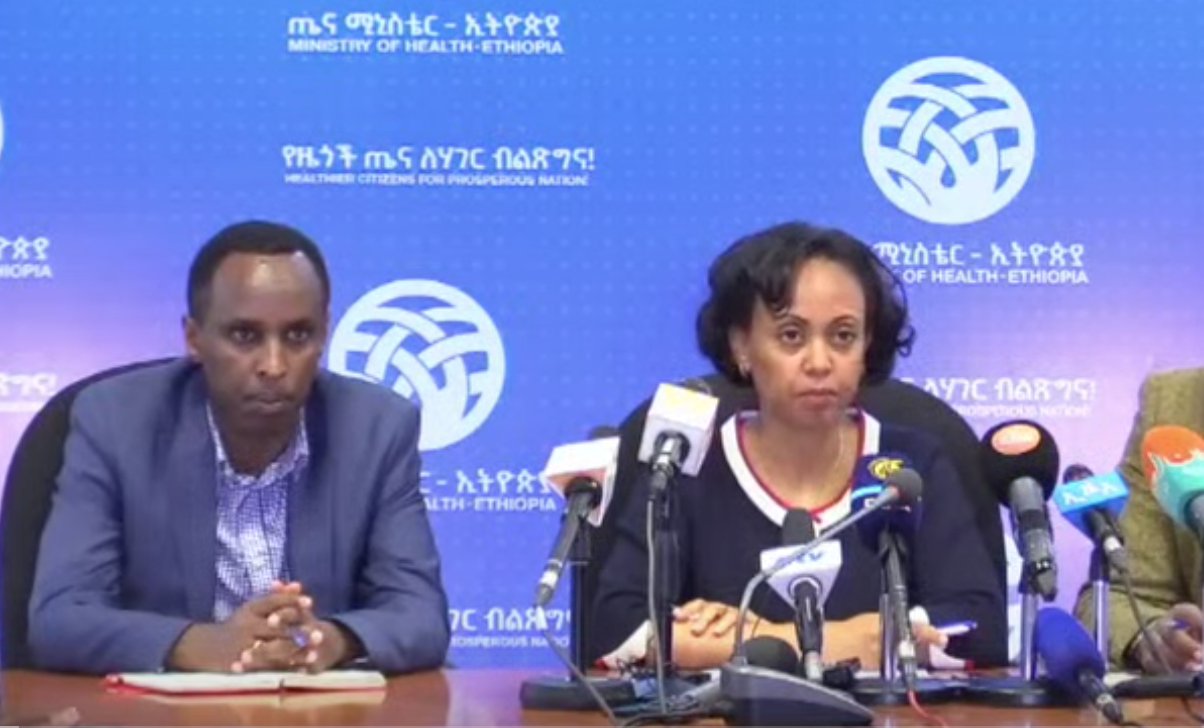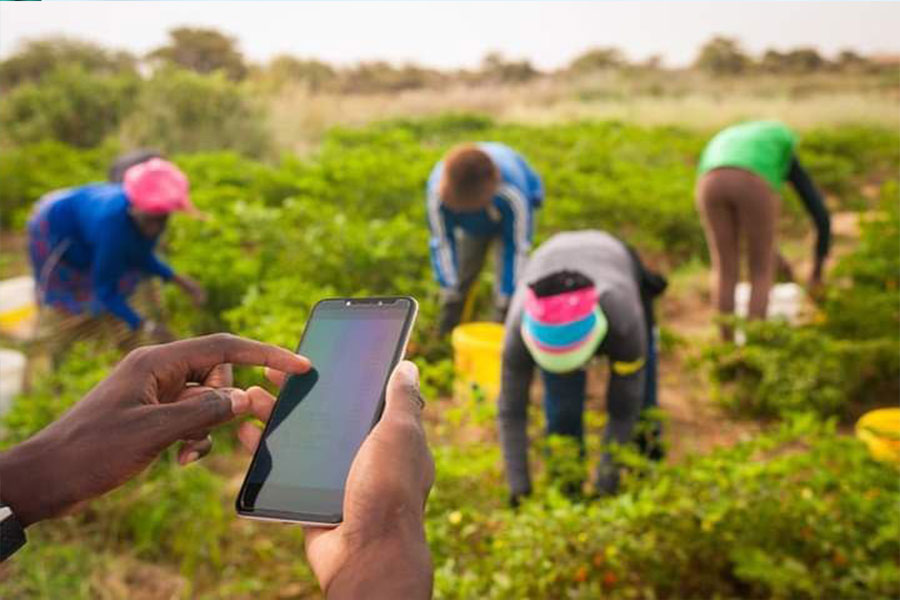
Editorial | Mar 19,2022
Nov 4 , 2023
By MUNIR SHEMSU ( FORTUNE STAFF WRITER )
As part of the strategy to boost agricultural production, Ethiopia moves to mobilise international funds through a 750 million dollar investment proposal submitted to the Food and Agricultural Organization (FAO) two weeks ago.
The proposal invites investment in production of organic fertiliser and limestone to improve soil health, enhance agricultural mechanisation and boost animal feed utilisation.
Minister of Industry Melaku Alebel attended the flagship FAO Hand in Hand initiative forum in the Italian capital looking to benefit from the private sector investment, donor funds and data-driven agrifood system analysis. He was joined by senior officials from 32 countries.
About 40pc of Ethiopia's cultivated land requires mitigation of soil acidity.
Last year, only 12pc of the total lime from the planned amount of 900,000qtl was imported into the country. Meanwhile, a significant portion of the acidic land, which reduces fertiliser efficiency by 78pc was left untreated.
To address this issue, the proposal invites the establishment of around 22 lime-producing factories for 13.6 million dollars each in the Ogaden and Abay basins in Somali and Oromia regional states and small-scale factories in the Mekelle, Tigray Regional State.
Through government-guaranteed credit facilities provided to farmers for limestone procurement, doubling the yield for a single hectare of maize to 60qtl is suggested by the proposal.
Plans to establish up to 35 factories to produce fertilisers with a cost of 3.8 million dollars, each producing up to 65,000tn annually, are also indicated in the proposal.
Total investment for both fertiliser and lime production amount to 57pc of investment.
While attempts to increase participation of private investment in the agricultural sector have increased over the past few years, close to 60pc of farmers continue cultivating on fragmented plots of less than a single hectare in Ethiopia.
Dereje Abebe, investment director at the Ministry of Agriculture, acknowledged the role of incentivising commercial actors and revealed ongoing efforts to map the capacities of operational investors across six regional states.
"We are verifying feasibility by physically investigating the locations," he told Fortune.
He revealed that Kobotol, a digital surveying tool, was being used to map out the purported capacities of agricultural investors in the country, with some sectors showing promising levels of mobilisation.
"We are creating an enabling environment," he said.
Dereje revealed that around 5,000 farmers with extensive holdings of 2.1 million hectares engaged in maize and other priority commodities were being assisted with mapping to incentivise more activity.
"Some sectors don't have associations or a formal representative," he told Fortune.
The Director indicated that the Ministry is working to upgrade its systems management by creating departments for each agri sector, formulating laws similar to the contract farming bill that was ratified the past year and establishing continuous relationships with commercial actors of the agricultural sector.
"Horticulture has been the area where significant headway has been made," he told Fortune. The export earnings of Horticulture had increased by 22.5pc last year to 246.5 million dollars, only preceded by coffee.
Ethiopia has consistently had a small percentage of its investments directed towards agriculture; of the total 112 licensed investments which became operational last year at a capital of 2.2 billion Br. Surprisingly, none were in agriculture, highlighting the seriousness of the capital shortage in the sector.
The other investment which includes mechanisation of irrigation and smallholder farm equipment entails a 107 million dollar investment with up to five factories established to produce a walking tractor and small attachments.
Investments of around 158 million dollars are suggested by the proposal in commercial production of animal feed from agroindustrial by-products and retail-level silage production by contract farming out-grower models and secure land for private investment.
The trio of investment proposals are set to be functional in the context of the 10-Year Perspective Development Plan, and the Revised Agricultural and Rural Development Policy adopted in 2020.
Experts versed in the agro-economy point out that successful investment attraction will require sustainable supply chains, guaranteed security status and expanded incentives.
Ewnetu Kebede (PhD), a researcher with extensive experience in Ethiopia's agricultural landscape, highlights problems undermining profitable and sustainable investment in the long run, emphasising on livestock.
Ewnetu explained the difficulty of finding cattle capable of sustaining a constant supply even though the opportunity to improve breeds existed for a long time.
"A century of agricultural research went into the renowned Dutch breed," said the researcher.
He reasoned that a rich capability rests on the supply of reliable and nutrient-rich feed at a reasonable rate. He keenly explained that Maize accounts for 45pc of the input in a nutrient-rich feed for livestock with the ability to grow in most parts of the country.
A prominent investor will need readily available supply locally with the prevailing foreign currency shortage, according to Ewnetu, who highlighted the prevailing security risk in several regions. He recommends establishing military camps around large-scale investments to provide security guarantees, minimising interest rates for credit to agribusiness and significant utilisation of available resources to attract prospects.
An emphasis on land provision and proper facilitation of inputs is also echoed by agricultural economist Taye Melese, who underscores the significance of an enabling policy environment long term.
He noted that integrating investors into local supply chains would be necessary to muster a significant capital allocation. He said prior efforts to onboard investments in agriculture had been curtailed due to poor access to essential inputs and lack of market access.
"Realities on the ground must match aspirations," Taye told Fortune.
PUBLISHED ON
Nov 04,2023 [ VOL
24 , NO
1227]

Editorial | Mar 19,2022

Fineline | Apr 04,2020

Fortune News | Jun 25,2022

Fortune News | Mar 13,2020

Viewpoints | Aug 03,2019

Radar | Apr 03,2021

Fortune News | Jul 12,2021

Fortune News | Apr 09,2022

Radar | Aug 12,2023

Fortune News | Jan 25,2020

Dec 22 , 2024 . By TIZITA SHEWAFERAW
Charged with transforming colossal state-owned enterprises into modern and competitiv...

Aug 18 , 2024 . By AKSAH ITALO
Although predictable Yonas Zerihun's job in the ride-hailing service is not immune to...

Jul 28 , 2024 . By TIZITA SHEWAFERAW
Unhabitual, perhaps too many, Samuel Gebreyohannes, 38, used to occasionally enjoy a couple of beers at breakfast. However, he recently swit...

Jul 13 , 2024 . By AKSAH ITALO
Investors who rely on tractors, trucks, and field vehicles for commuting, transporting commodities, and f...

Jul 5 , 2025
Six years ago, Ethiopia was the darling of international liberal commentators. A year...

Jun 28 , 2025
Meseret Damtie, the assertive auditor general, has never been shy about naming names...

Jun 21 , 2025
A well-worn adage says, “Budget is not destiny, but it is direction.” Examining t...

Jun 14 , 2025
Yet again, the Horn of Africa is bracing for trouble. A region already frayed by wars...